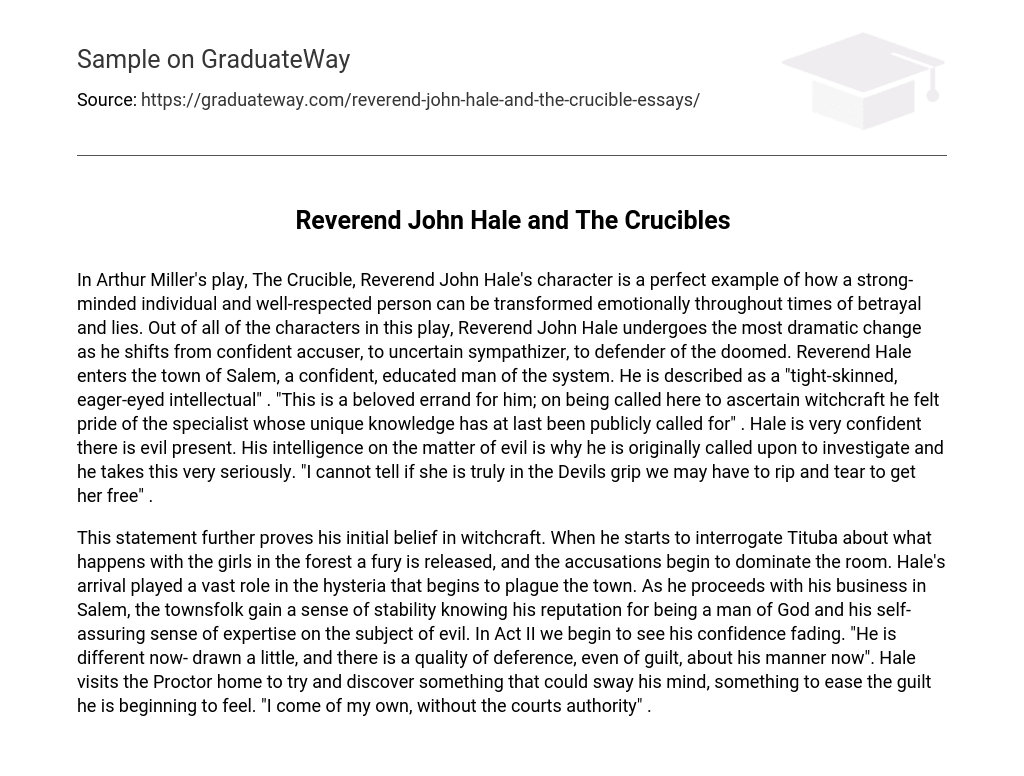Arthur Miller’s play, The Crucible, features the character of Reverend John Hale, who exemplifies the emotional transformation that can occur in a strong-minded and respected individual amidst betrayal and deceit. Among the characters in the play, Reverend Hale experiences the most significant change, evolving from a confident accuser to an uncertain sympathizer and ultimately becoming a defender of those destined for destruction. Upon arriving in Salem, Reverend Hale is depicted as a self-assured and knowledgeable individual who adheres to the established system. He is described as a “tight-skinned, eager-eyed intellectual” and feels privileged to be called upon to determine the existence of witchcraft. He firmly believes in the presence of evil and approaches his investigation with utmost sincerity. For instance, he states, “I cannot tell if she is truly in the Devils grip we may have to rip and tear to get her free.”
This statement further confirms his initial belief in witchcraft. When he interrogates Tituba about the events involving the girls in the forest, a fury erupts and the accusations take over the room. Hale’s arrival greatly contributes to the hysteria that starts to engulf the town. As he continues his work in Salem, the townspeople find solace in his reputation as a man of God and his confident expertise on the subject of evil. However, in Act II, his confidence starts to waver. “He has changed now – looking worn-out, and there is a sense of deference, even guilt, in his demeanor”. Hale visits the Proctor household in search of something that could sway his perspective, something to alleviate the guilt that is beginning to weigh on him. “I have come here on my own accord, without the authority of the court”.





